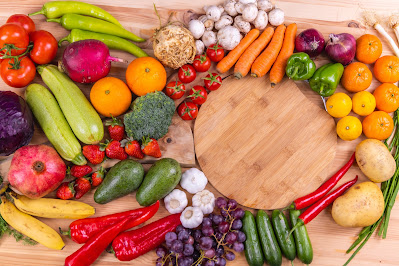Low sodium intake improves diet quality and health
Sodium mineral plays a vital role in our bodies such as:
- Conducting nerve impulses
- Contracting and relaxing muscles
- Regulating fluid levels
- Controlling Glucose Absorption
- Maintaining Acid-base Balance
It is found naturally in eggs and vegetables and is also the main component of table salt (sodium chloride). Though it plays a vital role in our bodies, dietary sodium intake should be limited. And to people with heart failure, high blood pressure, and kidney disease, a low-sodium diet is a must.
The kidneys tightly regulate sodium levels based on the concentration of bodily fluids.
Too much sodium can cause health conditions such as high blood pressure, heart disease, and stroke. A high salt diet will cause the reduced function of the kidneys and remove less water resulting in higher blood pressure. The kidneys will then be strained, which may lead to kidney disease. It can also cause calcium losses even from the bones. The bones will then weaken.
Most foods we eat contain much lower sodium levels. These foods include; whole foods like vegetables, fruits, and poultry. Plant-based foods like fresh produce contain less sodium than animal-based foods, such as meat and dairy products.
Sodium is most concentrated in processed and packaged foods like chips, frozen dinners, and fast foods where salt is added during processing to enhance flavor. Another major contributor to sodium intake is adding salt to food during preparation in your kitchen before eating.
Sodium intake should be at least one teaspoon (2,300 mg) per day.
Try limiting foods high in sodium to keep your sodium intake under the recommended level.
Benefits of a Low-Sodium Diet
Following a low-sodium diet may benefit your health in several ways.
May reduce blood pressure
A low-sodium diet may help decrease blood pressure. Studies have shown that changing to a low-sodium diet can lead to significant changes in blood pressure, especially in people with elevated levels.
It May Help Decrease inflammation in the stomach
High-salt diets can damage the stomach mucosal lining and increase inflammation. A diet low in high-sodium processed foods and rich in fruits and vegetables may reduce this inflammation.
May Improve Diet Quality
Many unhealthy foods, such as fast foods and frozen meals, have very high sodium levels, unhealthy fats, and calories. Frequent consumption of these foods may cause health conditions such as obesity, diabetes, and heart disease.
Replacing these high-salt foods with a low-sodium diet may improve your overall diet quality.Foods to avoid
The following foods are high in sodium and should be avoided or limited:
- Fast food: Burgers, fries, pizza, etc.
- Salty snack foods: Crisps, salted nuts, pringles, etc.
- Frozen meals: Frozen meat, pizza, etc.
- Processed meats: Bacon, sausage, and hot dogs.
- Salty soups: Canned soups and packaged soups.
- Cheese and dairy products: Cheese, cottage cheese, buttermilk, salted butter, etc.
- Boxed meals: Macaroni and cheese, pasta meals, rice meals, etc.
- Sauces and seasonings: Gravy, soy sauce, commercial tomato sauce, salsa, and salad dressing.
- Pickled vegetables
- Regular vegetable juice
Low-Sodium Foods to add to your diet
If you follow a low-sodium diet, choose foods naturally low in sodium or contain limited amounts of added salt.
You can add the following low sodium foods to your diet:
- Fresh and frozen vegetables: Greens, broccoli, cauliflower, peppers, cabbage, etc.
 |
| Broccoli |
 |
| A variety of greens |
- Fresh or dried fruits: Berries, apples, bananas, pears, etc.
- Grains and beans: Dried beans, peas, brown rice, quinoa, and whole-wheat pasta.
- Starchy vegetables: Irish potatoes, sweet potatoes, butternut squash, etc.
- Fresh meat and poultry: Chicken, turkey, beef, or pork.
- Fresh or frozen fish: cod, sea bass, tuna, sardines, etc.
- Eggs: Whole eggs and egg whites.
- Healthy fats: Olive oil, avocado fruit, and avocado oil.
- Low-sodium soups: Homemade soups.
- Dairy products: Milk, Greek yogurt, low-sodium cheeses, etc.
- Bread and baked goods: Whole-wheat bread, unsalted crackers, etc.
- Unsalted nuts and seeds: Pumpkin seeds, flaxseeds, almonds, peanuts, etc.
- Low-sodium snack foods: Unsalted popcorns, unsalted tortilla chips, etc.
- Low-sodium seasonings: Vinegar, mayonnaise, etc.
- Low-sodium beverages: Tea, coffee, water, etc.
- Low-sodium spices: Garlic powder, ginger powder, herbs, etc.
Summary
Sodium is a vital mineral in our bodies, but too much sodium in the diet can cause health conditions like high blood pressure, heart disease, and stroke. Endeavor to opt for a low sodium diet for good health.
Choose fresh foods (fruits and vegetables) and avoid salty and processed foods. Cooking more meals at home is a great way to control your salt intake, allowing you to stay within your recommended sodium intake.




Comments
Post a Comment